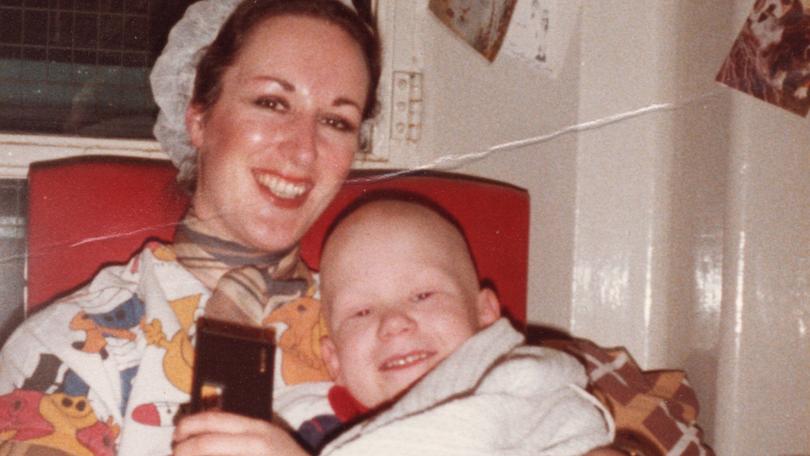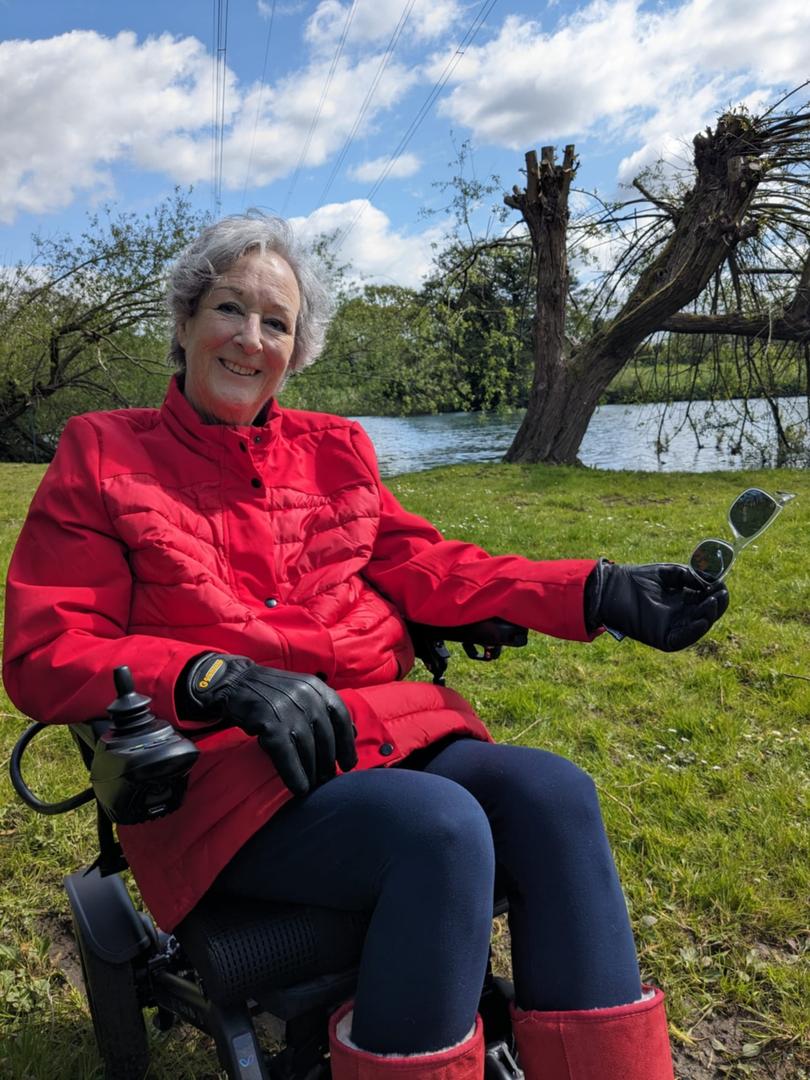Antonya Cooper: I helped my cancer-stricken boy die at the age of seven, admits heartbroken mum 43 years on
A dying mother has admitted she killed her seven-year-old son and revealed why she ‘quietly’ ended his life.

A dying mother has admitted killing her terminally ill seven-year-old son by using a large dose of morphine to “quietly end his life”.
Antonya Cooper said Hamish had stage four cancer and was “facing the most horrendous suffering” before his death in 1981.
She said Hamish was “telling me he was in pain and asking me if I could remove his pain” and that as a mother, she was “not going to let him suffer”.
Sign up to The Nightly's newsletters.
Get the first look at the digital newspaper, curated daily stories and breaking headlines delivered to your inbox.
By continuing you agree to our Terms and Privacy Policy.The brave youngster had been battling neuroblastoma – a rare cancer that affects children – since the age of five and had been given just three months to live.
Despite 16 months of “beastly” cancer treatment at Great Ormond Street Hospital in London, his incurable illness had left him in constant agony.
Speaking of her decision to give her boy a large dose of morphine, Mrs Cooper, who went on to help launch the charity Neuroblastoma UK, said: ”It was the right thing to do.”
“My son was facing the most horrendous suffering and intense pain, I was not going to allow him to go through that.”
Now facing her own battle with terminal cancer aged 77, Mrs Cooper, from Abingdon, Oxfordshire, has described in heartbreaking detail how she helped her son die after he begged her to ease his suffering.
“On Hamish’s last night, when he said he was in a lot of pain, I said, ‘Would you like me to remove the pain?’ and he said, ‘Yes please, mama’,” Mrs Cooper told BBC Radio Oxford.
“And I gave him a large dose of morphine that did quietly end his life.”
She was asked if she believed her son knew she was intending to take his life.
“I feel very strongly that at the point of Hamish telling me he was in pain, and asking me if I could remove his pain, he knew, he knew somewhere what was going to happen,” she replied.
“I was his mother, he loved his mother, and I totally loved him, and I was not going to let him suffer, and I feel he really knew where he was going.”
Her admission comes as she fights to change the law on assisted dying.
Assisted suicide – the act of intentionally helping someone to end their life – and euthanasia – the deliberate ending of a person’s life – are both illegal in the UK.
Mrs Cooper could be open to a potential police investigation.
Asked if she understood she had potentially admitted to manslaughter or murder, she told the radio station: “Yes. If they come 43 years after I have allowed Hamish to die peacefully, then I would have to face the consequences.”
“But they would have to be quick because I’m dying too.”
Last night Thames Valley Police said it was “making inquiries” but would not comment further.
In 1979, after his fifth birthday, Hamish started crying in pain and losing weight and Mrs Cooper knew he was “seriously ill”.
After visits to seven GPs, she took him to a private paediatrician at the John Radcliffe Hospital – and even then, she was told there was “nothing wrong”.
She insisted on further examinations and it transpired that Hamish had a grapefruit-sized tumour in his abdomen, namely stage four neuroblastoma.
He was transferred to Great Ormond Street Hospital, where he had chemotherapy, a bone marrow autograft, radiotherapy, and surgery to remove the cancerous tissue, which had shrunk to the size of a tangerine.

His prognosis was three months. He subsequently had 16 months of treatment, which ‘ruined parts of his body’ but extended his life.
Mrs Cooper said she would have honest conversations with Hamish and his sister Tabitha, who were “thick as thieves”, about the “probability of his not surviving”.
While he did not ask about death directly, there came a point later on where, in answer to one of his questions, Mrs Cooper said: “Yes, Hamish, you probably will die.”
After his treatments, he returned to school.
But in the autumn he took a knock on an ankle and developed septic arthritis.
Biopsies revealed his cancer had “returned with a vengeance”.
After receiving palliative care at home and being given morphine sulphate, Hamish died on December 1, 1981.
Mrs Cooper now has incurable pancreatic cancer and is having chemotherapy.
Coming to terms with her own incurable cancer four decades after her son’s death, she said: “I am not a religious person, but there is a tiny voice inside me that believes it would be wonderful if I could cuddle Hamish again.”
